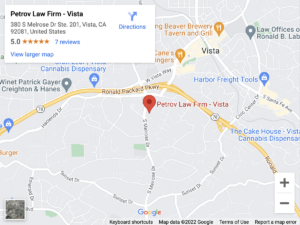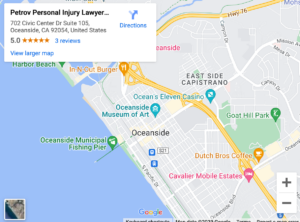
An expert witness is a particular kind of witness–a witness with special credibility because of their intimate knowledge of a particular subject. Lawyers often use expert witnesses in personal injury lawsuits (and sometimes in settlement negotiations) to resolve complex issues of fact. Indeed, the use of expert witnesses is routine in certain kinds of cases.
Professional Opinion vs. Personal Knowledge
The testimony of an expert witness is different from the testimony of an eyewitness. For example, an eyewitness might say, “I saw the defendant’s dog bite the plaintiff.”
An expert witness might say, “A DNA analysis of the saliva found inside the plaintiff’s wound indicates with 99% certainty that it belonged to the defendant’s dog.”
Please note that, unlike the eyewitness, the expert witness does not have to have personally observed the dog attack to qualify to testify about it.
Types of Expert Witnesses
Both plaintiffs and defendants use many different types of expert witnesses, including the following:
- Medical experts (doctors or medical professionals) can testify about your injuries in a personal injury lawsuit, and they can testify about fault in a medical malpractice lawsuit.
- Accident reconstruction experts can determine fault for an accident by putting together an accident timeline.
- Economists or financial experts can assess the financial impact of your injury, including lost wages, lost earning capacity, and future medical expenses.
- Mental health experts (psychologists or psychiatrists) can testify about the psychological impact of an injury.
- Life care planners can create comprehensive plans for your long-term care if you suffer a catastrophic injury, including medical care, rehabilitation, and equipment.
- Forensic engineers can testify about the failure of a product or a component that injured you.
- Toxicologists can provide insights into the effects of toxic substances on the human body.
Theoretically, you can call an expert witness on just about any subject as long as their testimony is relevant to the case.
How a Court Qualifies an Expert Witnesses: The Frye Standard
California, unlike most states, uses the Frye standard to qualify expert witnesses. This standard arose from the case Frye v. United States.
It requires that the expert’s methods be “generally accepted” in their field. This standard, which varies from the Daubert standard that courts in most states use, gives more power to the scientific community and less power to individual judges.
Common Qualifications of Expert Witnesses
Following are some common expert witness qualifications that courts insist on:
- Education,
- Professional experience,
- Certifications and licenses,
- Publications,
- Memberships in professional organizations, and
- Training.
Qualifying an unconventional witness, such as an artist, would depend on the purpose for which you need their expertise.
Testifying Expert vs. Consulting Expert
A testifying expert – well, testifies. You must promptly notify the opposing party of any testifying expert you plan to use so that they can cross-examine them during a deposition.
A consulting expert is an expert you don’t intend to call to testify. Since the purpose of retaining a consulting expert is to help you understand the case, you don’t have to notify the opposing party.
The Expert Witness Industry
Yes, you can ask your family doctor to be your expert witness. But they probably don’t have time, and they might lack expertise in the subject for which you need testimony. Your best bet is to hire a full-time expert witness. This might be, for example, a retired doctor who now testifies at trial for a living rather than practicing medicine.
Even a knowledgeable expert witness who lacks experience testifying might stumble over words under the pressure of cross-examination. The main advantage of using a professional expert witness is that they are experienced witnesses who know how to handle this pressure and will not wilt under cross-examination.
Although online expert witness agencies offer access to expert witnesses, your best bet is probably to let your lawyer select an expert witness they are accustomed to working with. Experienced personal injury lawyers have favorite expert witnesses who they have worked with in many, many cases.
The “Hired Gun” Objection
You can be sure that as long as the defendant is not calling their own expert witness, they will be sure to bring to the court’s attention the fact that you are paying your expert witness. The purpose here is to cast doubt on the witnesses’ impartiality. Don’t worry—the use of paid expert witnesses is routine and will not likely bias a court against you.
Hire an Experienced Vista Personal Injury Lawyer
Vista personal injury lawyers typically delay billing their clients until the case is over. The reason for this is that a successful personal injury claim is what generates the income necessary to pay the lawyer’s contingency fees and case expenses.
With a contingency fee, you only pay attorney’s fees if the lawyer wins or settles your case. You can also hire them without paying a cent upfront. Contact or call Petrov Personal Injury Lawyers at (619) 344-0360 to schedule a free consultation with one of our experienced personal injury attorneys in Vista, CA.


